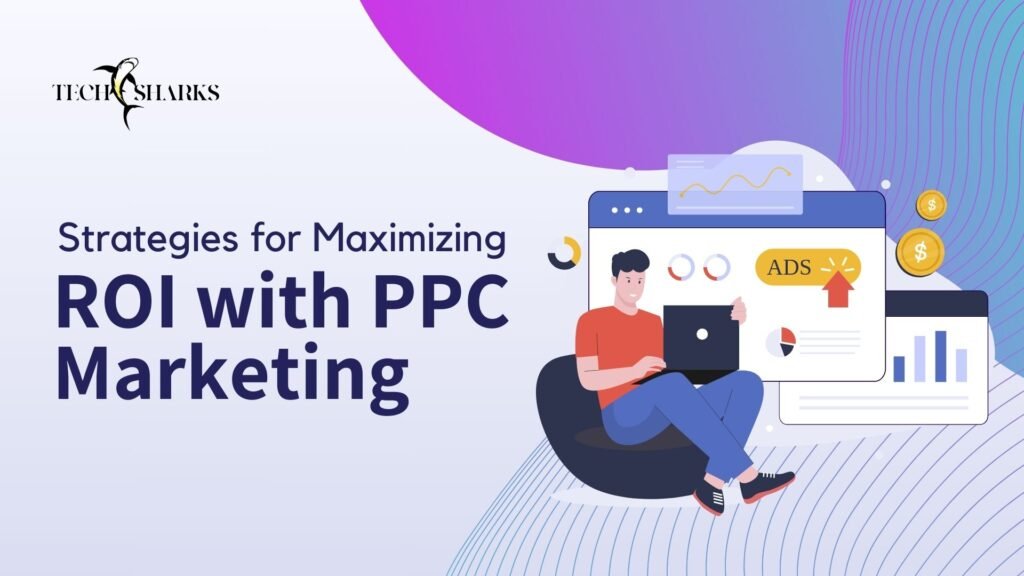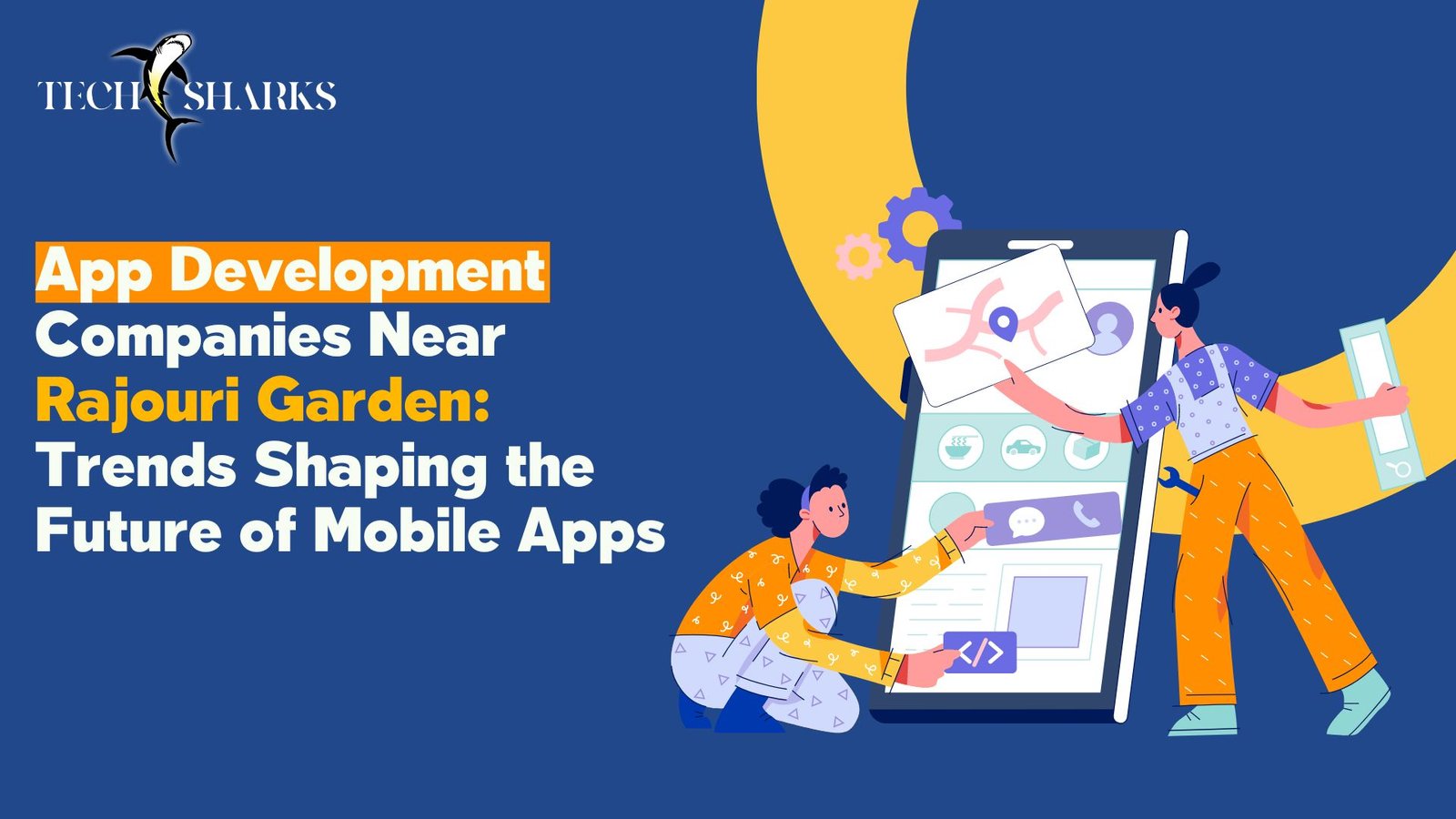In the dynamic realm of digital marketing, businesses are ceaselessly seeking ways to maximize ROI. Enter Pay-Per-Click (PPC) marketing, a robust force in the digital landscape. This strategy provides businesses with a targeted and measurable approach to connect with their audience. In this comprehensive blog, we will delve into the transformative impact of PPC in digital marketing, with a specific emphasis on integrating the expertise of Techsharks, ensuring businesses navigate this dynamic landscape with precision and success.
I. Understanding the Essence of PPC Marketing:
PPC marketing, or Pay-Per-Click marketing, is a digital advertising approach in which advertisers pay a price for each click on their ad.This method allows businesses to buy visits to their website, rather than relying solely on organic traffic. The foundation of PPC lies in strategic bidding for ad placement in search engine sponsored links when users search for keywords relevant to their business.
- Key Components of PPC Marketing:
- Keyword Research: The heart of PPC is identifying and targeting the right keywords. Thorough keyword research ensures that ads are displayed to a relevant audience actively searching for products or services.
- Ad Placement: PPC advertisements appear at the top or bottom of search engine results pages (SERPs) based on bidding and relevance. Effective ad placement is crucial for visibility and click-through rates.
- Bidding Strategies: Advertisers bid on keywords, and the ad placement is determined by the bid amount and relevance. Bidding strategies vary, and understanding the dynamics of bidding is essential for a successful PPC campaign.
II. Harnessing the Power of PPC Marketing:
PPC marketing offers a plethora of benefits for businesses aiming to maximize their ROI. Understanding and leveraging these advantages are pivotal to a successful digital marketing strategy.
- Immediate Visibility and Targeted Reach:
- Targeted Reach: PPC allows businesses to target specific demographics, locations, interests, and search queries. This tailored method guarantees that ads are displayed to the most relevant audience, which increases the possibility of conversion.
- b) Measurable Results and Cost Control:
- Measurable Results: PPC campaigns provide detailed analytics, allowing businesses to track clicks, impressions, conversions, and other essential metrics. This data-driven approach enables businesses to measure the success of their campaigns accurately.
- Cost Control: PPC offers flexibility in budgeting. Advertisers can set daily or monthly budgets, ensuring they have control over their advertising expenses. This cost-effective model ensures businesses pay for actual clicks, maximizing the value of their investment.
- c) Flexibility and Customization:
- Flexibility: PPC campaigns are highly flexible and adaptable. Advertisers can adjust strategies, budgets, and targeting parameters based on real-time data and performance metrics.
- Customization: PPC allows for customized campaigns tailored to specific goals such as brand awareness, lead generation, or e-commerce sales. The ability to customize ad copy, targeting parameters, and bidding strategies provides businesses with significant control.

III. Strategies for Maximizing ROI with PPC Marketing:
To truly unleash the power of PPC marketing, businesses need to implement effective strategies that align with their objectives and target audience.
- Keyword Research and Selection:
- Conduct extensive keyword research to uncover high-performing keywords related to your business.Strategic selection ensures that your ads are displayed to a qualified and interested audience.
- Compelling Ad Copy:
- Craft compelling and relevant ad copy. The ad copy should align with the searcher’s intent, be concise, engaging, and encourage clicks. Well-crafted ad copy significantly impacts click-through rates and conversions.
- Landing Page Optimization:
- Ensure that the landing pages linked to your ads are optimized for conversion. The landing page should be relevant to the ad, have a clear call-to-action, and provide a seamless user experience to maximize conversions.
- Ad Extensions and Enhanced Features:
- Utilize ad extensions to provide additional information in your ads, such as site links, callouts, and location details. These extensions enhance the visibility and appeal of your ads, increasing the chances of user engagement.
- Continuous Monitoring and Optimization:
- Regularly monitor the performance of your PPC campaigns. Analyze data, identify areas for improvement, and optimize your campaigns by adjusting bidding strategies, ad copy, and targeting parameters to enhance overall effectiveness.
In conclusion, the power of PPC in digital marketing lies in its ability to provide targeted visibility, measurable results, and cost-effective advertising. Businesses that understand the essence of PPC, harness its power effectively, and implement strategies for maximizing ROI are positioned for digital marketing success. The immediacy, flexibility, and customization offered by PPC make it a dynamic and essential component of a comprehensive digital marketing strategy. As businesses navigate the digital landscape, embracing the transformative impact of PPC marketing is key to unlocking unparalleled growth and success.
FAQs
1. What is PPC in digital marketing, and how does it contribute to ROI?
PPC, or Pay-Per-Click, is a digital advertising technique in which businesses pay a fee when their ad is clicked.It contributes to ROI by providing businesses with a measurable and targeted approach to reaching their audience, ensuring ad spend aligns with actual engagement.
2.How does PPC marketing differ from traditional advertising methods?
Unlike traditional advertising where businesses pay a fixed cost for ad placement, PPC marketing charges advertisers only when a user clicks on their ad. This results in a more cost-effective model where businesses pay for actual engagement rather than potential exposure.
3. What role does targeting play in PPC marketing’s impact on ROI?
Targeting is crucial in PPC marketing. Businesses can target specific demographics, locations, interests, and search queries. This targeted approach ensures ads are shown to a relevant audience, increasing the chances of engagement and conversion, thus positively impacting ROI.
4. How can businesses ensure a positive ROI through PPC marketing?
Positive ROI in PPC marketing is achieved through strategic keyword selection, compelling ad copy, and continuous optimization. Monitoring campaigns, adjusting bidding strategies, and ensuring a seamless user experience on landing pages are key contributors to a positive ROI.
5. What advantages does PPC marketing offer for businesses seeking immediate visibility?
PPC marketing provides immediate visibility as ads can be launched quickly. This rapid deployment ensures that businesses become visible to their target audience almost instantly, contributing to increased brand awareness and potential customer engagement.



